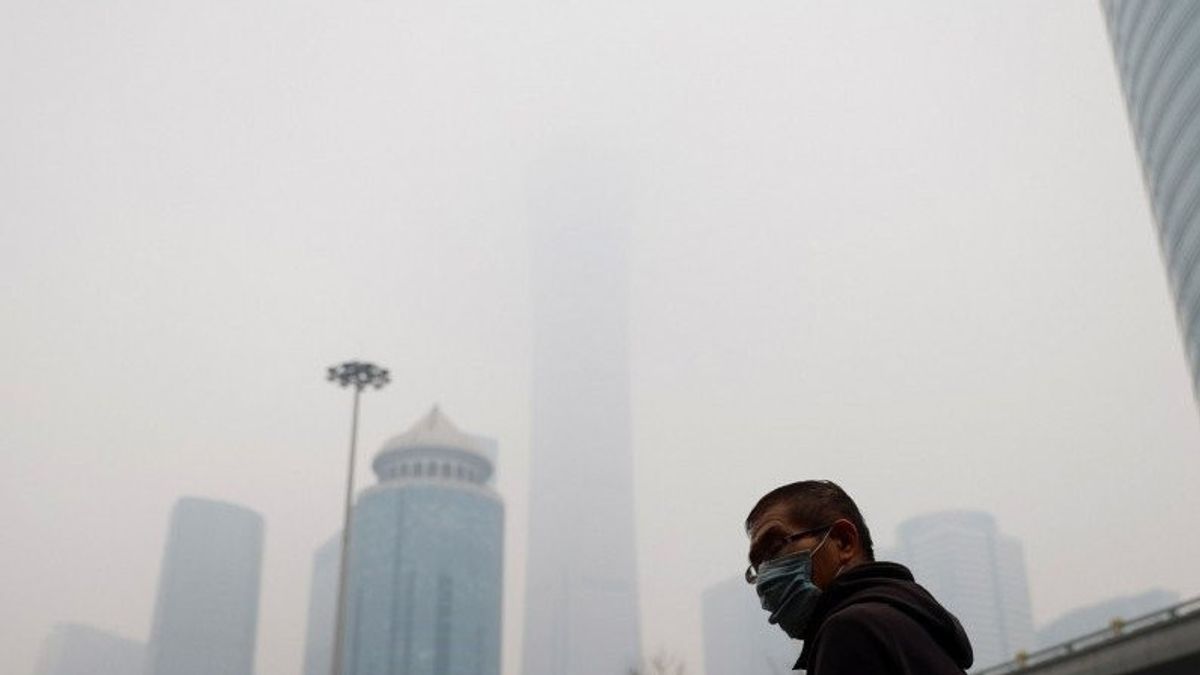JAKARTA - Here is a summary of some of the latest scientific studies on the new coronavirus and efforts to find a treatment and vaccine for COVID-19, the disease caused by the virus.
Air pollution exacerbates severe COVID
Dirty air contributes to the severity of COVID-19, according to a study from one of America's most polluted cities. Researchers who studied 2,038 adults hospitalized with COVID-19 in the Detroit area found that those who needed intensive care and machines to help them breathe were more likely to live in environments with higher levels of air pollution and lead paint.
The worse the local air contamination, the higher the likelihood of requiring intensive care and mechanical ventilation. Anita Shallal of Detroit's Henry Ford Hospital said long-term exposure to air pollution can damage the immune system and make it more susceptible to viral infections, while fine particles in air pollution can also act as carriers of the virus and help spread it.
The study "draws attention to systemic inequalities that may be causing the stark differences in COVID-19 outcomes along racial and ethnic lines," Shallal said in a statement from the European Congress of Clinical Microbiology and Infectious Diseases, in where he presented his findings on Friday.
"Communities of color are more likely to be located in areas closer to industrial pollution, and to work in businesses that expose them to air pollution."
Beta variants can increase hospitalizations and deaths
The Beta variant of the coronavirus may be more lethal than the original version of the virus, according to researchers in South Africa who studied more than 1.5 million COVID-19 patients.
Although the Delta variant now accounts for the largest percentage of new COVID-19 cases in many countries, the Beta is still circulating, with mutations that make it highly contagious and more difficult to prevent or treat than the original version.
The researchers found that people infected in the second wave of the pandemic, when Beta was dominant, were more likely to require hospitalization than those infected during the first wave, after accounting for patient risk factors and excessive hospital burden.
Furthermore, hospitalized COVID-19 patients had a 31% higher risk of death in the second wave, according to a report published Friday in The Lancet Global Health.
The researchers did not know which variant infected each patient, so they had to use the first and second wave periods as proxies for the variant type, one of the authors Dr. Waasila Jassat of the National Institute for Infectious Diseases in Johannesburg told Reuters.
"We hope to repeat the analysis, comparing the third wave in South Africa with the first two waves, to try to understand whether the Delta wave is associated with a higher risk of death," he said.
mRNA vaccines perform well in US "real world" studies
The most frequently used COVID-19 vaccine in the United States is effective not only in clinical trials but also in the "real world", according to a national study. Using data on samples of US adults hospitalized between March and May 2021, the researchers found that mRNA vaccines from Pfizer/BioNTech and from Moderna "prevented about 87 percent of hospitalizations for COVID-19 that would have occurred had the vaccine not been administered," said Dr. Wesley Self of Vanderbilt University Medical Center.
The effectiveness was similar for both vaccines and highest -- at 97.3 percent -- among adults aged 18 to 49, his team reported in a paper posted Thursday on medRxiv ahead of the peer review.
Among immunocompromised individuals, the vaccine prevented about 59 percent of COVID-19 hospitalizations, which would have occurred if the vaccine had not been given. That is still a "substantial benefit," Self said, but "because the protection is not effective for people with reduced immunity, we believe (they) should still take precautions to avoid contracting COVID-19 even if they have been vaccinated," Self said.
The English, Chinese, Japanese, Arabic, and French versions are automatically generated by the AI. So there may still be inaccuracies in translating, please always see Indonesian as our main language. (system supported by DigitalSiber.id)













